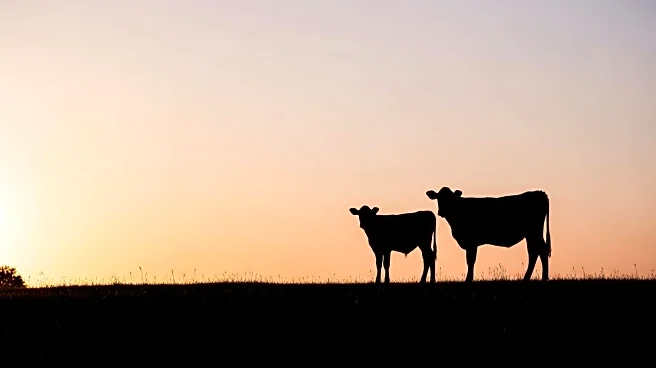What is the story about?
What's Happening?
A coalition of NGOs has sent a letter to EU Animal Welfare Commissioner Olivér Várhelyi, urging the European Commission to stop the transport of unweaned calves from Ireland to France via roro ferry. This follows a previous letter sent in February. The European Commission's 2022 audit found that these journeys violate Regulation EC1/2005, which mandates feeding requirements during long-distance transport. The calves, often deprived of feed for over 24 hours, face harm and suffering, according to Caroline Rowley, Director of Ethical Farming Ireland. Despite a trial by Teagasc to implement a feeding system during transport, the attempt was unsuccessful due to practical challenges. The NGOs emphasize the urgency of addressing this issue, as approximately 400,000 calves have been transported since the audit.
Why It's Important?
The transport of unweaned calves without adequate feeding poses significant animal welfare concerns, highlighting the need for stricter enforcement of EU regulations. This issue affects the agricultural industry, particularly in Ireland and France, where such practices are prevalent. The NGOs' call for action underscores the ethical responsibility to ensure humane treatment of animals during transport. Failure to address these concerns could lead to public backlash and potential regulatory changes, impacting the livestock trade and associated economic activities.
What's Next?
The European Commission may consider revising its enforcement strategies to ensure compliance with animal welfare regulations. Stakeholders, including agricultural businesses and animal welfare groups, are likely to engage in discussions to find viable solutions. The development of effective feeding systems during transport could be prioritized, potentially influencing future transport practices and policies.
Beyond the Headlines
The ethical implications of animal transport practices raise questions about the balance between economic interests and humane treatment. This issue may prompt broader discussions on animal rights and welfare standards within the EU, potentially influencing legislative changes and public attitudes towards livestock farming.
















